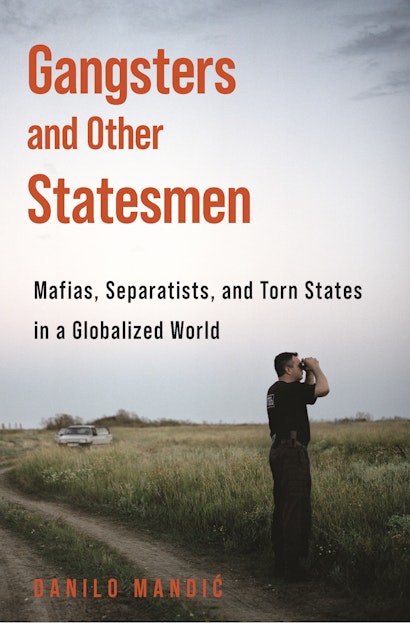Separatism has been on the rise across the world since the end of the Cold War, dividing countries through political strife, ethnic conflict, and civil war, and redrawing the political map. Gangsters and Other Statesmen examines the role transnational mafias play in the success and failure of separatist movements, challenging conventional wisdom about the interrelation of organized crime with peacebuilding, nationalism, and state making.
Danilo Mandić conducted fieldwork in the disputed territories of Kosovo and South Ossetia, talking to mobsters, separatists, and policymakers in war zones and along major smuggling routes. In this timely and provocative book, he demonstrates how globalized mafias shape the politics of borders in torn states, shedding critical light on an autonomous nonstate actor that has been largely sidelined by considerations of geopolitics, state-centered agency, and ethnonationalism. Blending extensive archival sleuthing and original ethnographic data with insights from sociology and other disciplines, Mandić argues that organized crime can be a fateful determinant of state capacity, separatist success, and ethnic conflict.
Putting mafias at the center of global processes of separatism and territorial consolidation, Gangsters and Other Statesmen raises vital questions and urges reconsideration of a host of separatist cases in West Africa, the Middle East, and East Europe.
Awards and Recognition
- Winner of the Mirra Komarovsky Book Award, Eastern Sociological Society
Danilo Mandić is a Postdoctoral Fellow and Lecturer in Sociology at Harvard University.
"By crossing disciplines and borders, Mandić successfully carries out an act of political alchemy, demonstrating how the grubby ‘gangsters’ of today’s separatist movements may well be the glorious governors of tomorrow. His work will be of interest to a variety of scholars and undoubtedly paves the way for all manner of future analyses across the social sciences."—Alessandro Ford, LSE Review of Books
"Gangsters and Other States[sic]men takes a rigorous academic approach to a subject too often mired in stereotype."—Kieran Pender, Times Literary Supplement
"Mandić's innovation is to show that success or failure of separatist movements depends on a three-way relation, not just among separatists and the state but also organized crime. This is a gestalt-changing book for understanding today's strife-torn world."—Randall Collins, author of Charisma: Micro-sociology of Power and Influence
"A masterpiece. Mandić has produced a breathtaking and expertly crafted page-turner on a notoriously inaccessible topic: the role of organized crime in fractured states. This magisterial work offers crucial insights about the interpenetration of the transnational with the local and the ambiguous—but systematically patterned—influence of criminal actors on national breakdown and state building."—Bart Bonikowski, New York University
"Tilly once said that states resemble organized protection rackets. In this beautifully written and riveting book, Mandić shows that the line between political power and mafias is even more porous than even Tilly imagined. Gangsters and Other Statesmen demonstrates that globalization and separatism are not opposing forces but may be two different faces of the same greed and violence."—Miguel A. Centeno, coauthor of War and Society
"Highly original. In this accessible and elegantly written book, Danilo Mandić explores a largely neglected social phenomenon—the strong connection between organized crime and secessionism. There is no doubt that Gangsters and Other Statesmen is a significant contribution."—Siniša Malešević, author of Grounded Nationalisms
"Timely and important. In prose that is engaging without being sensationalistic, Mandić explores the relationship between organized crime and political instability, ethno-nationalist conflict, and separatism, showing how mafias are not peripheral to these conflicts but play a fundamental role in shaping patterns of state cohesion and fragmentation."—Katherine Hirschfeld, author of Gangster States: Organized Crime, Kleptocracy, and Political Collapse

